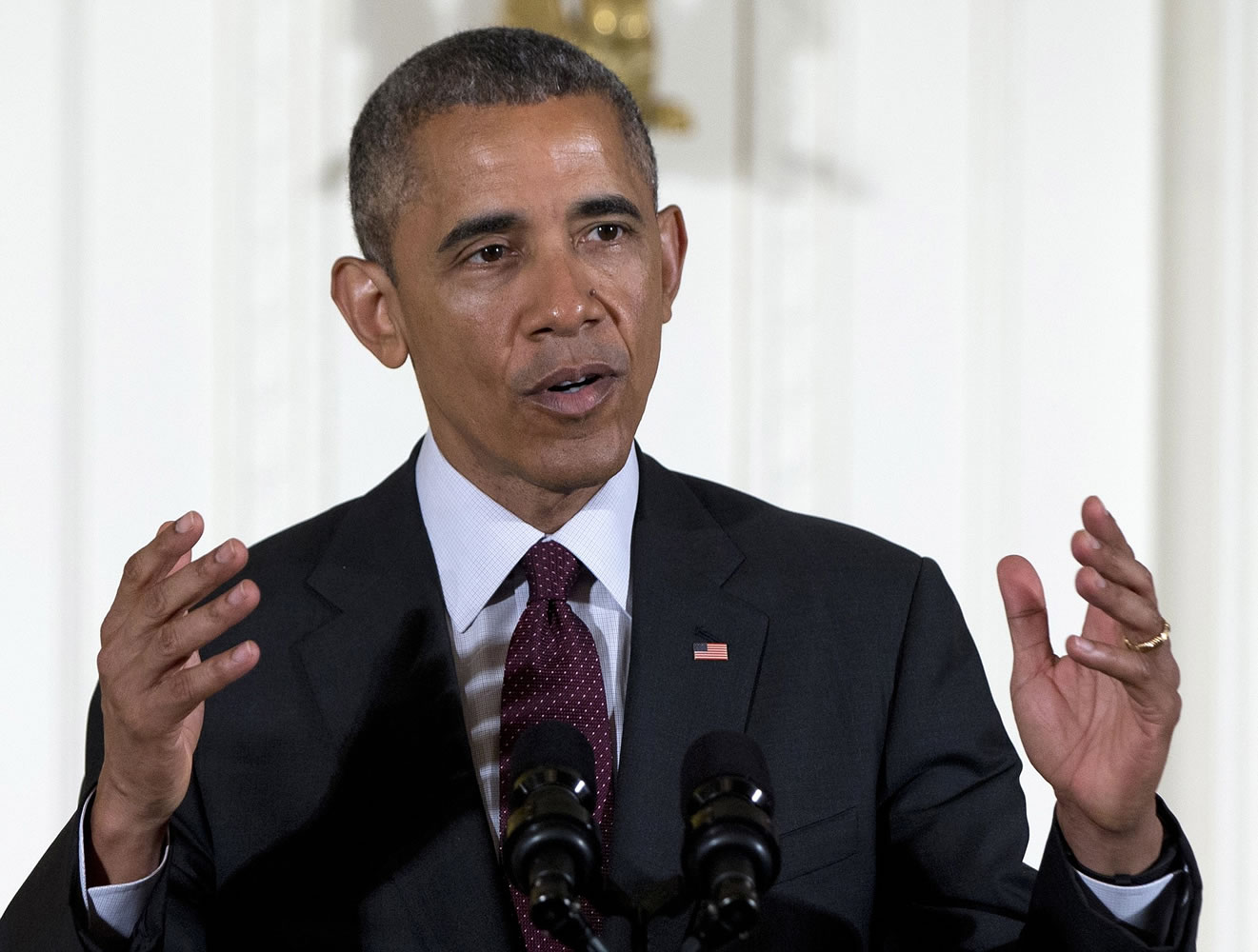WASHINGTON — President Barack Obama said China has made inquiries about potentially joining a Trans-Pacific trade agreement in the future, introducing a new variable to an unfolding debate in Congress over granting the president the authority to negotiate such international pacts.
In an interview with American Public Media’s “Marketplace” radio show on Wednesday, Obama offered assurances that the Trans-Pacific negotiations among the U.S. and 11 other Pacific rim countries would set international trade rules that would even affect China, which is not now a party to the talks.
“They’ve already started putting out feelers about the possibilities of them participating at some point,” Obama told “Marketplace” host Kai Ryssdal.
Obama has often promoted the Trans-Pacific deal as a way for the U.S. to gain influence in Asian markets and to keep China “from writing the rules of the road.” If China were to join the Trans-Pacific partnership at some point, it would have to agree with the standards set by the multi-national agreement.
Obama is seeking trade negotiating authority from Congress that would set rules for the any future trade deals while giving lawmakers the right to only approve or reject, not change, the final agreements. Republican leaders and a majority of GOP lawmakers support Obama’s push, but most House Democrats are stiffening their opposition, arguing that the trade deals would be toothless and cost jobs. The Senate voted for such fast-track authority last month.
In raising the prospect of China, with its huge economy, becoming part of the Trans-Pacific Partnership, Obama is likely to intensify a debate over whether to include restrictions on currency manipulation in in the fast-track legislation, a step the White House vigorously opposes. But proponents of punishing countries that keep their currency artificially low to boost exports have often used China as an example of the kind of culprit they want to contain.
Administration officials and trade proponents say it’s not clear that China still manipulates its currency. They say that multinational trade deals are the wrong venues to address currency issues, arguing that they could spark trade wars and hurt the ability of the Federal Reserve to carry out monetary policy in the U.S.
Obama’s comments came on a day devoted to pushing his trade agenda, which faces an uncertain vote in the House later this month. Besides his appearance on “Marketplace,” Obama was giving interviews Wednesday to five television stations in California, Texas and Washington state media markets where Democratic lawmakers have either already committed to supporting him or where they remain undecided.
White House spokesman Josh Earnest said Obama was personally appealing to lawmakers and said the effort to build a bipartisan majority was still not complete. He said Obama’s message was that trade was crucial to building the U.S. economy.
“We’re optimistic that we have the opportunity to make that case to progressives across the country and to Democrats in the House of Representatives, we can give them a reason to support this bill,” he said.
Still, Democratic opponents were stepping up their criticism and rebuffing Obama’s lobbying efforts.
“I don’t need a perk from leadership, I don’t need a ride on Air Force One,” said Rep. Mark Pocan, D-Wis., at an anti-fast-track rally outside the Capitol.
Rep. Raul Grijalva, D-Ariz., rejected the notion that he’s being disloyal to his party’s president. “It’s a question of loyalty to the people who put us in this office,” Grijalva said.



